- Home
- Laurell K. Hamilton
Nightshade Page 10
Nightshade Read online
Page 10
He leaned over to speak softly to Troi. “What are they feeling, Counselor?”
“Basha is against this conference. I believe only Talanne’s intervention got the Torlicks to this meeting. The new Venturi leader, General Hanne, doesn’t believe in peace, but she is here out of respect for Alick’s memory. She thought a great deal of Alick.”
“So both sides wish the war to continue.”
“Both leaders do,” Troi said, softly.
Worf sat back in his chair, nodding. He had formed this plan to help persuade the Orianians that even with the assassination, peace was possible. No, not possible, imperative. Worf had to make them understand that an honorable peace was their only chance for survival. He took a deep breath and stood.
The bodyguards rustled like a field of corn in a sudden wind. Hands moved for weapons, but none were drawn. Worf knew that Picard would have led by example and left his phaser in the room, but Worf also had to ensure Troi’s safety. He was still head of security, no matter what other title he bore. Besides, the Orianians respected strength.
“I have called you to this meeting to discuss peace.”
“We saw how the Federation discusses peace,” General Hanne said. Her voice held contempt and anger.
Worf turned to the Venturi leader. “Captain Picard’s guilt has not been proven. Nor has the Greens’.”
“You are grasping at daydreams, Ambassador Worf, if you believe the Greens innocent,” Basha said.
Worf looked at the Torlick leader. “I see you do not believe Captain Picard guilty anymore than I do.”
“He is guilty. Without his intervention none of the Greens would have gotten near General Alick,” Basha said.
“Yes,” Hanne said, “Picard arranged it all very neatly.”
Worf fought the urge to raise his voice, and spoke very slowly and calmly, and hoped the effort did not show. “Ambassador Picard arranged nothing. He is not guilty. I do not know the Greens well enough to assure you of their innocence, but of Captain Picard’s innocence, I have no doubt.”
“You would say that,” Basha said, “He is your leader.”
Worf took a deep breath and let it out slowly. They were arguing in circles. “Regardless of what you believe of Picard, or the Greens, their guilt or innocence does not change why you called in a Federation ambassador.”
“We did not call the Federation in to assassinate our leaders,” Hanne said. “We can do that on our own.”
Worf ignored her with an effort. He clasped his hands in front of him and tried again. “Your planet is still dying. Neither the Venturies or the Torlicks will survive if your world dies. You are facing genocide, or has that changed since the arrest of Captain Picard?” Worf stared around the room, making eye contact with as many of the leaders as he could. Some were masked and he could not read their expressions, but it did not matter. He looked at them anyway.
“Did the arrest of Picard and the Greens purify your water? Did it cleanse your air and make it breathable again? Did it undo all the damage centuries of war have done to Oriana? Did it bring your children back?”
General Hanne would not meet Worf’s eyes. Basha stared at him, a flush of anger creeping onto his golden skin. Talanne stared at him, her face eager, as if urging him on.
“How many of you in this room alone have lost children; not to the war, but to disease, deformities. The poison you have spilled into the air, the ground, the water—that is killing more of you every year than fighting. More children die every year than warriors.”
“That is not true,” someone shouted.
“It is true,” Worf shouted back, and his voice filled the chamber, echoing. “And I have proof of it. Dr. Zhir.” He sat down so he would not dwarf the slender woman.
She stood, peering out at the group almost nervously. “You all know who I am. Many of you were my patients. I sang you to sleep when you were too badly deformed to live outside the containment wall.”
“We all know and respect you, Dr. Zhir,” Basha said. “Your work is well known to us. You are the savior of our children, and we are grateful.”
“If you are truly grateful then listen to this man,” she motioned at Worf. “He offers you a chance for peace. A chance that our race may not die out.”
“We do not know Dr. Zhir,” Hanne said. “We respect our doctors, but she means nothing to us.”
“I am Torlick by birth, but I am also Orianian. If we do not do something now, I will live to see the destruction of our entire race. The poisons in our atmosphere do not care what color cloaks we wear. The poisons do not care who is right or wrong. They kill indiscriminately. And the ones they kill most often are the children.” She turned to Hanne, pointing. The bodyguards shifted nervously.
“How many healthy births have the Venturies had this year?”
“I do not know.”
“Last year?”
“I do . . .”
“For the last five years, the last ten years, how many?”
Hanne glared at the doctor. “I do not know.”
“You do know, maybe not the number, but you know. We all know.” Her voice carried throughout the room. “I thought I had given up. I was caring for the children because they were in pain, but I knew it was hopeless. Our race was doomed, killed by our own hands. Then I met the Federation ambassador, and his mind-healer. They returned to me something I had lost. No, something I had given up. Hope. They gave me back my hope. Hope that this world, our people, are not lost.”
“It is a moving speech,” Hanne said, “but it changes nothing.”
“That’s right,” Dr. Zhir said, “it changes absolutely nothing. If the two of you do not begin to talk peace here and now, nothing will change, and in ten years there will be no Torlicks, no Venturies. We will all be dead.”
“You exaggerate, doctor,” Basha said.
“No, General Basha, I do not. The deformities of our children grow worse. Most women cannot even become pregnant. Those that do, miscarry, or give birth to hideous things that I pray will die, because I cannot save them. There have been things born into my arms that haunt my dreams. We are killing our children. Without our children we will die as a race, both sides. It will not matter who is right, or wrong, or who won, or who lost. There will be no one to care, because we will have poisoned Oriana. This planet will die and the few struggling remnants of our race will die with it.”
Dr. Zhir hesitated for a moment, then said, “I did not think I could still care so very much.” She set down to a room that had grown utterly still.
Worf waited a moment, then stood. “Your planet will die, your children are dead and dying, let peace save them both.”
Hanne cleared her throat sharply. “The Venturies are willing to talk peace, but not yet. If Picard was acting alone with the Greens, then his death will cleanse the honor of the Federation. If he is innocent, then again, we can talk peace with the Federation. But if Picard names the rest of you as accomplices, or that this was a Federation plot, then there will be no talks, no peace,”
“I agree with General Hanne,” Basha said. “Prove Picard innocent and we will talk peace, or let him die as the single Federation traitor, and we still talk. We understand that you are not responsible for every member of your party. We have all had ambitious traitors in our midst.”
Worf wanted badly to defend the captain, but he held his tongue. The captain was innocent—they would prove that, shouting would not help. “So,” Worf said, “if we prove Captain Picard’s innocence, you will talk peace.”
“Yes, or let him die guilty without naming you as accessaries, and we will talk peace,” Basha said.
Worf did not say it would be a hot day on Rura Penthe before he let Picard die to save this world. Perhaps, as a Federation ambassador, he should have been willing to sacrifice his captain, his friend, to save an entire race. But Worf did not lie to himself about his motives or his priorities—humans tended to do that, but not Klingons. He knew where his loyalty lay, and it was not wi
th the Orianians. It was with Captain Jean-Luc Picard.
Chapter Ten
WORF STOOD TO ONE SIDE of Troi’s delicate figure, watching the face of Dr. Stasha, the doctor who had first examined the murder scene. Worf normally didn’t feel so imposing, but there was something about the doctor that made him think of a dog that had been kicked once too often.
She had small features: eyes, mouth, nose, all in the middle of her face. There was nothing wrong with her face, everything was perfectly symmetrical, but still the effect was crowded. Her face looked like a piece of dough that someone had pinched in the middle. Everything had been scooped to the center. Her large, shining eyes, so typical of the Orianians, were almost bulging as if the eye sockets did not quite hold them
Now that he had seen two of the “lifeless children” brought back to life, Worf recognized the signs. Dr. Stasha had floated in a metal coffin for how long? Worf could not conceive of spending childhood floating, hooked to machines, then coming out close to normal. How could you recover from something like that? Or did you? Could that be why the Orianians had so little respect for life and honor? Did something happen to them while they floated in the vats? Was something unnamed lost in that horrible waiting?
“We need to know what you have found, Doctor.” Worf said. He meant it as a request. It sounded like an order.
Dr. Stasha did not seem to be offended. Perhaps she was accustomed to taking orders. “We have done a genetic scan of General Alick’s cup. We have four separate genetic types already matched with their donors.”
“But I was standing right there, Doctor,” Worf said. “No one passed the general’s cup around the room. Four people could not have touched it.”
“I did not say that they touched it, Lieutenant Worf. Do you know what dust is, Ambassador?”
Worf frowned down at the slender woman. “That is an odd question. I do not understand its importance.”
“I am not explaining myself well, please forgive me.” The doctor took a deep breath, clasping her small hands in front of her. Worf did not need Troi’s empathic gifts to see the woman’s nervousness. Was the doctor merely nervous about what had happened, frightened of him, or was she hiding something? Worf would try to be less threatening and then they would see.
“Dust is formed out of the minute particles of living tissue as it sloughs off: dry skin cells, hair follicles, bits and pieces of living matter. Just by standing close to an object, almost all of us leave little particles behind. If allowed to accumulate, the particles become dust. Thus, there were tiny genetic bits from four different people in, or on, the cup in question.”
“Whose?”
“General Alick’s, of course; Liv’s, one of the Greens; General Basha’s; and Ambassador Picard’s.”
Worf shook his head. “How did you match these samples?”
She blinked, then nodded. “Of course, you would want to know.” She turned to a spotless white counter top that held only a bulky object, which was nearly a perfect rectangle. Small knobs protruded along the sides. Stasha removed the top of the rectangle to reveal eyepieces.
“This is our genetic matchmaker. We find it very useful in tracing bombs and assassins. We do try and kill the people that are directly responsible for any terrorist activity. We are not indiscriminate butchers.” She said the last without looking at Worf, but there was the tiniest bit of protest in her voice.
Stasha pressed her face to the eyepieces and adjusted the knobs to either side. “The sample on the left was taken from the murder scene. The right is a sample extracted from the people after the event, so we could try and match it.”
She looked up from the matchmaker. “Please, see for yourself. The matches are perfect.”
Worf crossed his arms across his chest. He fought an urge to glare down at her. Perfect matches, indeed. “How are we to know which samples came from the poisoned cup and which were collected afterwards?”
“Worf!” Troi said.
“What?”
“Please excuse the ambassador and myself for just a moment, Dr. Stasha?”
Stasha bowed her acknowledgment.
Troi grabbed Worf’s arm and pulled him to the far side of the room. “Worf, you practically accused that woman of lying.”
“She is obviously nervous about something. If she did tamper with the evidence, then hinting that we suspect her may make her admit it. Besides, it is important to assume that everyone is lying.”
“For heaven’s sake why?”
“Everyone lies. It is the fifth rule of Betan-Ka’s principles of investigation.”
“Well, you can’t let her know you think she is lying.”
Worf frowned down at her. “I did it deliberately, Counselor. I want her to know I suspect her.”
“Why?”
“It will make her nervous without threatening her. You did warn me not to bully people.”
Troi pursed her lips into a thin disapproving line. “Accusing people of crimes without some proof is a form of bullying. Dr. Stasha has been nothing but gracious to us. We do not need to alienate her without good cause.”
Worf thought about that for a moment. He had not yelled, or so much as raised a hand, and still Troi said he was too harsh. “Very well. We will do this your way—for now.” He walked back towards the waiting doctor. Troi followed him, like an apprehensive shadow. The counselor seemed determined to keep him reined in. He was beginning to feel like Picard when Riker urged him once too often to be careful.
“You may show us how your machine works,” he said. He stood very close to the Orianian. She seemed frail beside him and aware of that frailness. Good.
“Perhaps you would care to look first, Healer,” Stasha asked. She carefully avoided looking at Worf. Her slightly bulging eyes held a visible anxiety.
“I am the Federation ambassador, I will look first, Doctor.” He wanted to add, “or do you have something to hide,” but he resisted.
“Of course, of course, I meant no insult.” Her anxiety was almost painful to watch. Real fear chased through her eyes. Worf did not understand. He had not even raised his voice to her. He glanced at Troi to see if she was picking up anything more, but the counselor’s attention was focused on Dr. Stasha. Troi never even met his eyes.
“These controls help adjust the view through the eye pieces.” Stasha pointed to two knobs on either side of the box. “The upper will adjust the fit of your face to the machine. The lower is for focusing.”
Worf pressed his eyes just over the viewer. Two indistinct blurs met his eyes. As he brought the vision into focus, lines formed. Gray, black, white stripes solidified before his eyes. There were too many bands to count, all squished together. The pieces looked identical, but still . . .
“Whose sample is this?”
“The Green woman, Liv.”
“Is there a way to bring the samples together, to let them touch?”
“Of course, so sorry that I did not think to explain it.” Stasha moved forward. She hesitated as if unwilling to brush against Worf, but she reached out a tentative hand, pointing. “There is a small lever here to shift the platform.”
Worf bent back over the scanner, and carefully shifted the pieces closer and closer together. They met nearly perfectly. The small defects were an accident of having to cut and paste the genetic material. The samples themselves were as close to a perfect match as Worf had ever seen. There was no mistake. If he could trust Stasha, then Liv had left traces in the poisoned cup.
If they could trust Stasha? Worf frowned. He did not trust her. Her anxiety, even fear of him with so little cause, had to have a reason. How could they trust the Orianians not to tamper with the clues? How could they trust Captain Picard’s life to strangers? Especially strangers that were so easily frightened and Worf suspected, easily manipulated.
“It is a match, Counselor.”
“If you would like, I can show you Ambassador Picard’s samples next?” Stasha’s voice was tight with anxiety, almost a squeak.
>
He glanced at Troi, but she was staring at Stasha as if the woman had done something unique. Troi’s concentration was nearly pure. What was the counselor sensing from the doctor?
“Show us Ambassador Picard’s samples,” Worf said. He tried to keep his doubts off his face. He did not trust Dr. Stasha’s clues. No one was this afraid without reason. Picard was innocent, there could be no proof otherwise, unless it had been manufactured.
Stasha placed more slides into the scanner. “It is ready for you, Ambassador.” There was a hopeful lilt to her voice, as if she had decided to be nice to him. Be nice, and perhaps the storm that she feared would not come.
“Thank you, Stasha.” Worf tried to respond to this new attempt at bravery. Let the woman think he was fooled. If she were trying to frame Picard, nothing would save her.
Troi glanced at him, she was trying to convey something with her eyes. What? She was trying very hard to tell him something, it was almost a warning glance. But Worf was being a perfect gentleman. He could not help it if the doctor had something to hide and was afraid.
Even bent over the scanner, Worf could feel Stasha standing almost next to him, almost vibrating with anxiety. Instead of fear, she was trying to please now. Worf did not understand the change in the doctor. He adjusted one of the levers and accidently bumped the woman. She gasped. Worf looked up from the scanner and as gently as he could, said, “Please, Dr. Stasha, if you could stand over there. I need a little room.”
“Oh, of course.” Stasha moved past him. The woman stood on the far side of the room, near a door that led out the other side. It wasn’t the freedom of the hallway, but she wasn’t trapped either. Was she thinking of escape?
Worf bent back to the scanner. He would trust Troi to see that the doctor did not leave the room prematurely. The two samples were a mass of lines. It took only moments for the lines to become clear, symmetrical. “Where was Captain Picard’s sample found?”
“On the outside of the cup,” Stasha said, her voice sounded strained.

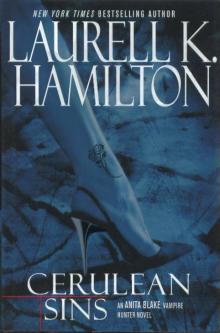 Cerulean Sins
Cerulean Sins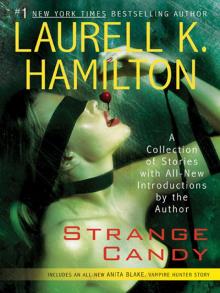 Strange Candy
Strange Candy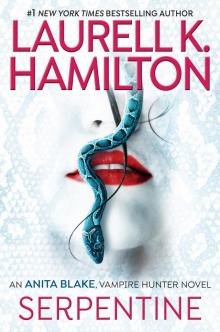 Serpentine
Serpentine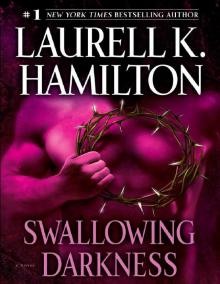 Swallowing Darkness
Swallowing Darkness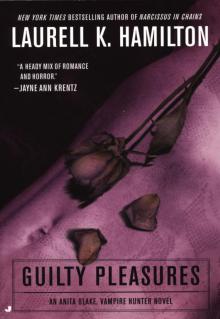 Guilty Pleasures
Guilty Pleasures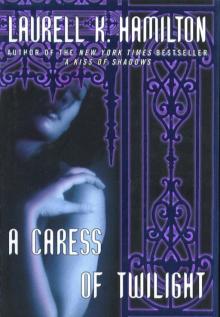 A Caress of Twilight
A Caress of Twilight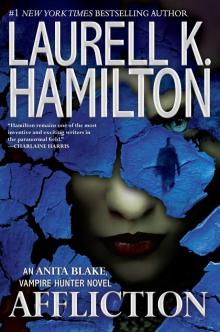 Affliction
Affliction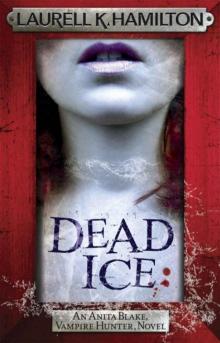 Dead Ice
Dead Ice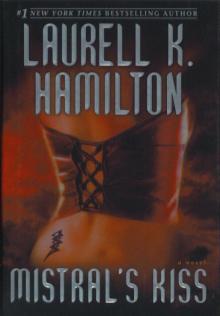 Mistrals Kiss
Mistrals Kiss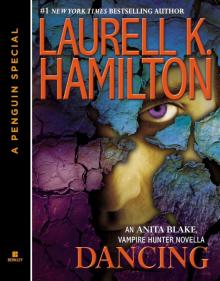 Dancing
Dancing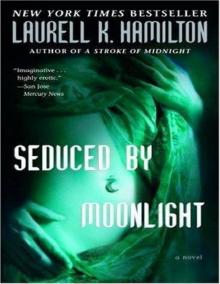 Seduced by Moonlight
Seduced by Moonlight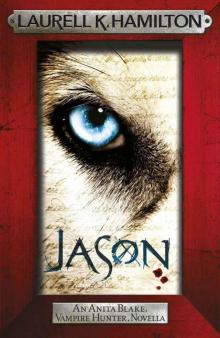 Jason
Jason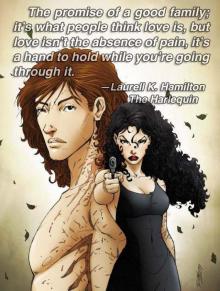 The Harlequin
The Harlequin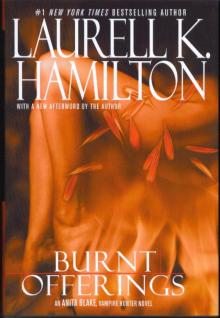 Burnt Offerings
Burnt Offerings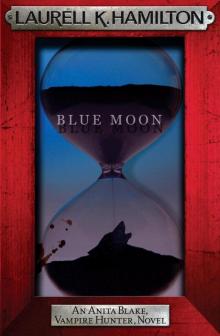 Blue Moon
Blue Moon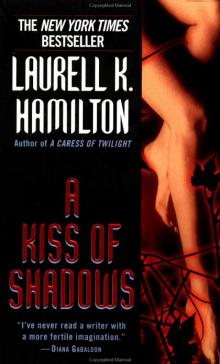 A Kiss of Shadows
A Kiss of Shadows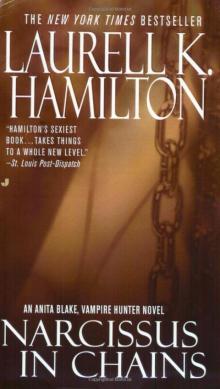 Narcissus in Chains
Narcissus in Chains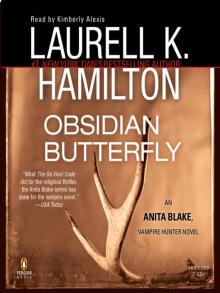 Obsidian Butterfly
Obsidian Butterfly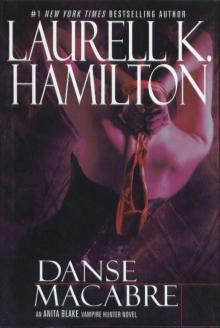 Danse Macabre
Danse Macabre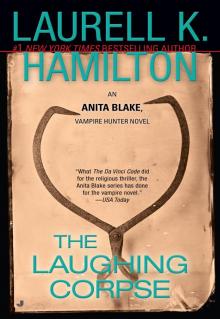 The Laughing Corpse
The Laughing Corpse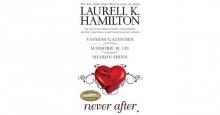 Never After
Never After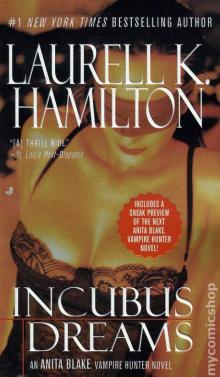 Incubus Dreams
Incubus Dreams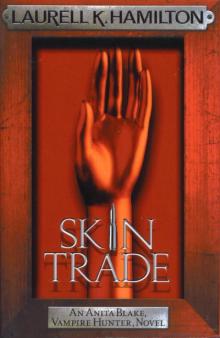 Skin Trade
Skin Trade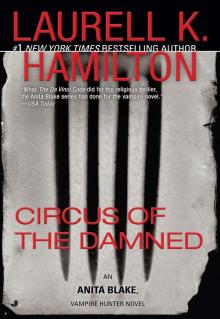 Circus of the Damned
Circus of the Damned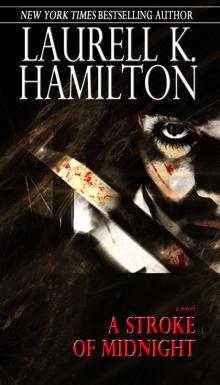 A Stroke of Midnight
A Stroke of Midnight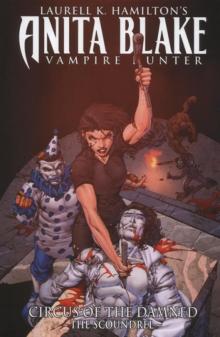 Laurell K. Hamilton's Anita Blake, Vampire Hunter
Laurell K. Hamilton's Anita Blake, Vampire Hunter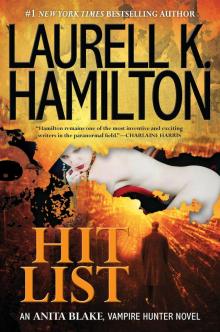 Hit List
Hit List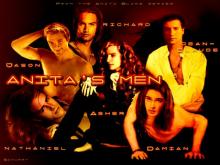 Micah
Micah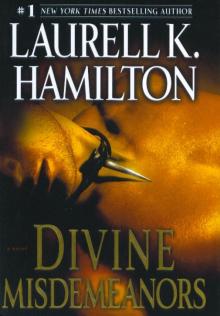 Divine Misdemeanors
Divine Misdemeanors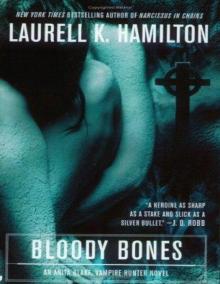 Bloody Bones
Bloody Bones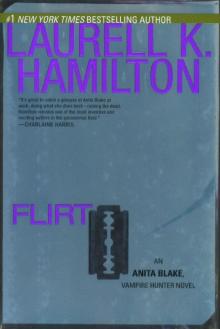 Flirt
Flirt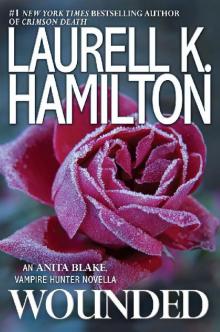 Wounded
Wounded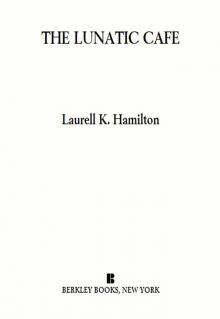 The Lunatic Cafe
The Lunatic Cafe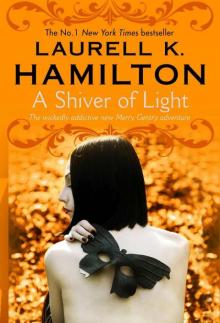 A Shiver of Light
A Shiver of Light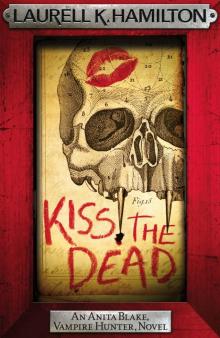 Kiss the Dead
Kiss the Dead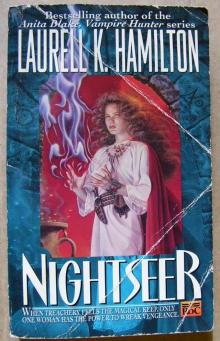 Nightseer
Nightseer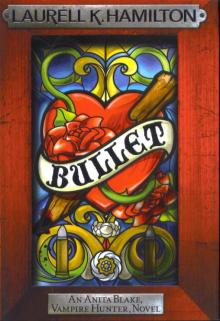 Bullet
Bullet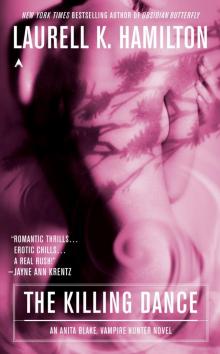 The Killing Dance
The Killing Dance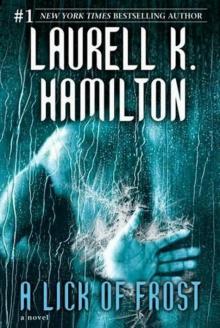 A Lick of Frost
A Lick of Frost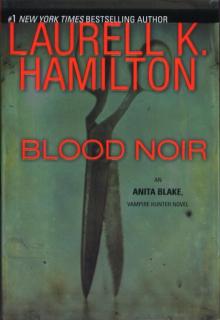 Blood Noir
Blood Noir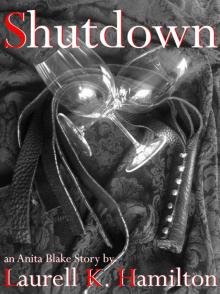 Shutdown
Shutdown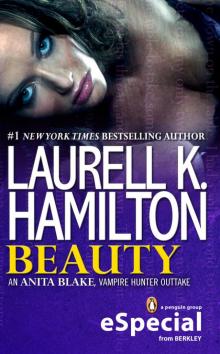 Beauty
Beauty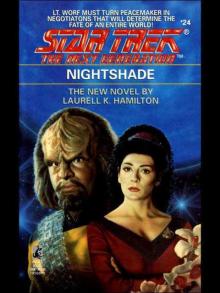 Nightshade
Nightshade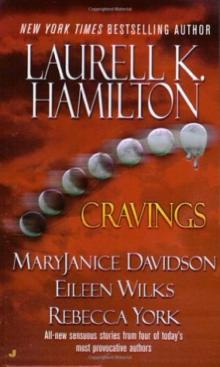 Cravings
Cravings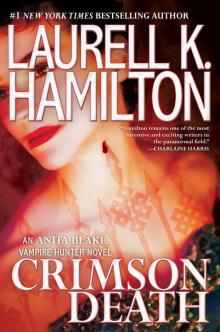 Crimson Death
Crimson Death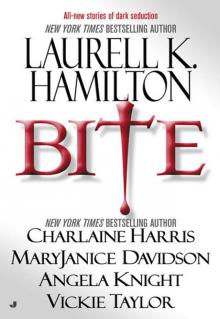 Bite
Bite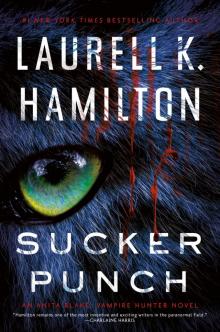 Sucker Punch
Sucker Punch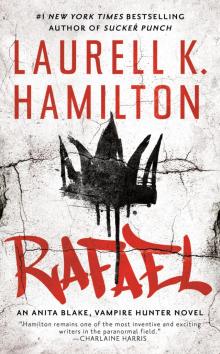 Rafael
Rafael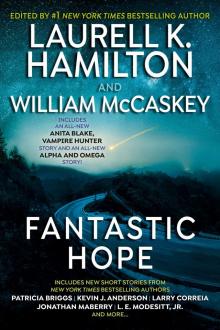 Fantastic Hope
Fantastic Hope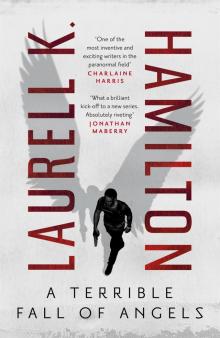 A Terrible Fall of Angels
A Terrible Fall of Angels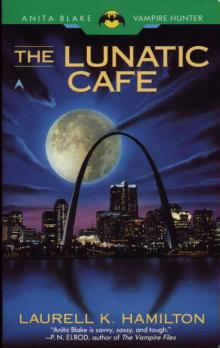 Anita Blake 4 - Lunatic Cafe
Anita Blake 4 - Lunatic Cafe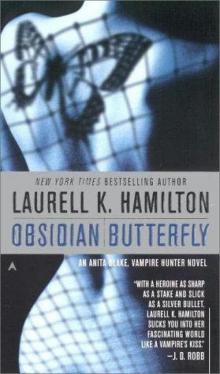 Obsidian Butterfly ab-9
Obsidian Butterfly ab-9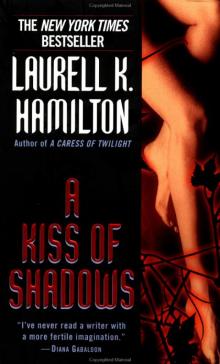 A Kiss of Shadows mg-1
A Kiss of Shadows mg-1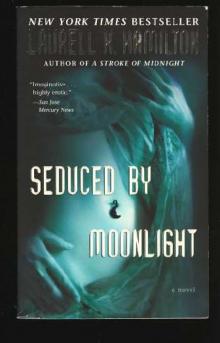 Seduced by Moonlight mg-3
Seduced by Moonlight mg-3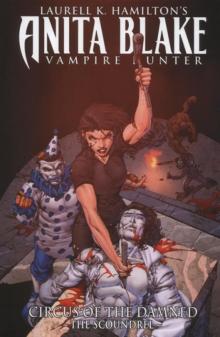 The Scoundrel
The Scoundrel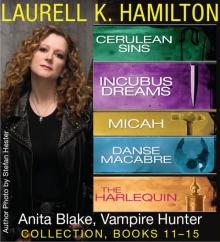 Anita Blake, Vampire Hunter collection 11-15
Anita Blake, Vampire Hunter collection 11-15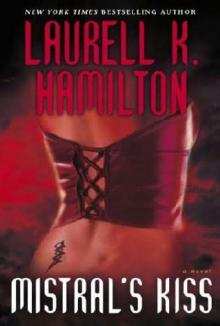 Mistral's Kiss mg-5
Mistral's Kiss mg-5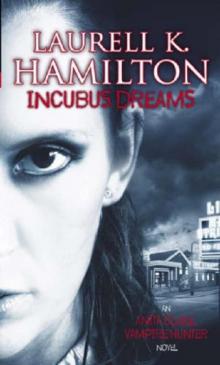 Incubus Dreams ab-12
Incubus Dreams ab-12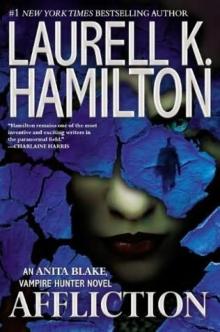 Affliction ab-22
Affliction ab-22![[Anita Blake 17] - Skin Trade Read online](http://i1.bookreadfree.com/i/03/23/anita_blake_17_-_skin_trade_preview.jpg) [Anita Blake 17] - Skin Trade
[Anita Blake 17] - Skin Trade![[Anita Blake 18] - Flirt Read online](http://i1.bookreadfree.com/i/03/22/anita_blake_18_-_flirt_preview.jpg) [Anita Blake 18] - Flirt
[Anita Blake 18] - Flirt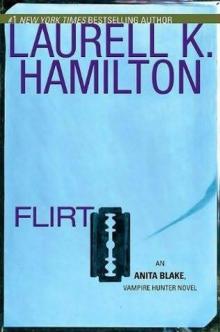 Flirt ab-18
Flirt ab-18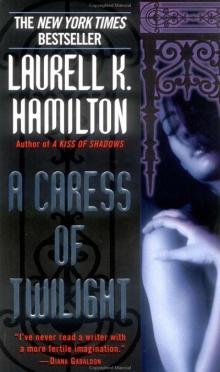 A Caress of Twilight mg-2
A Caress of Twilight mg-2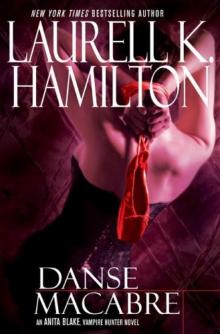 Danse Macabre ab-14
Danse Macabre ab-14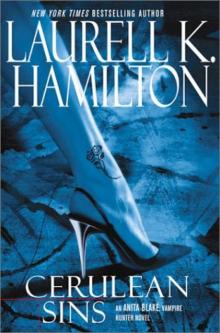 Cerulean Sins ab-11
Cerulean Sins ab-11![[Merry Gentry 05] - Mistral's Kiss Read online](http://i1.bookreadfree.com/i1/03/29/merry_gentry_05_-_mistrals_kiss_preview.jpg) [Merry Gentry 05] - Mistral's Kiss
[Merry Gentry 05] - Mistral's Kiss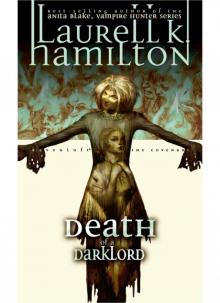 Death of a Darklord
Death of a Darklord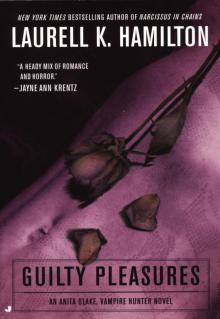 ABVH 01 - Guilty Pleasures
ABVH 01 - Guilty Pleasures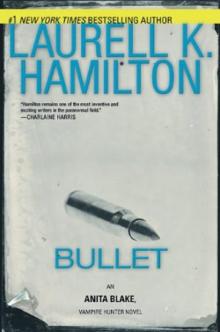 Bullet ab-19
Bullet ab-19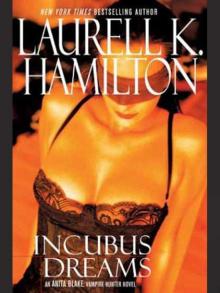 Anita Blake 12 - Incubus Dreams
Anita Blake 12 - Incubus Dreams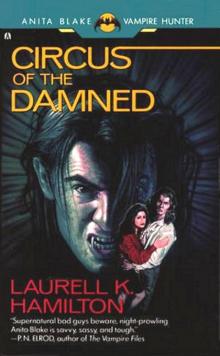 Curcus of the Damned
Curcus of the Damned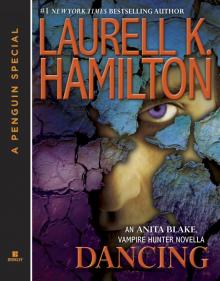 Dancing (anita blake)
Dancing (anita blake)![[Anita Blake 15] - The Harlequin Read online](http://i1.bookreadfree.com/i1/04/01/anita_blake_15_-_the_harlequin_preview.jpg) [Anita Blake 15] - The Harlequin
[Anita Blake 15] - The Harlequin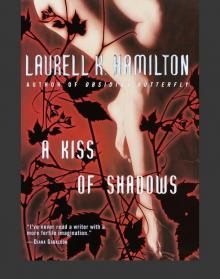 Meredith Gentry 01 - A Kiss of Shadows
Meredith Gentry 01 - A Kiss of Shadows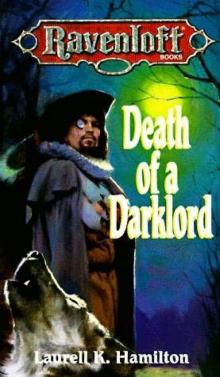 Death of a Darklord (ravenloft)
Death of a Darklord (ravenloft)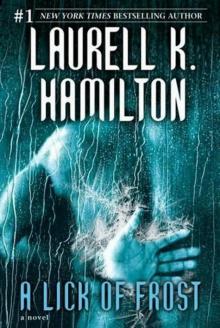 A Lick of Frost mg-6
A Lick of Frost mg-6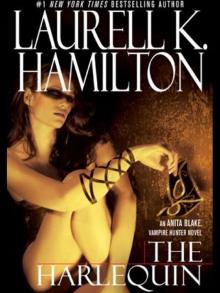 The Harlequin ab-15
The Harlequin ab-15![[Merry Gentry 04] - A Stroke of Midnight Read online](http://i1.bookreadfree.com/i2/04/10/merry_gentry_04_-_a_stroke_of_midnight_preview.jpg) [Merry Gentry 04] - A Stroke of Midnight
[Merry Gentry 04] - A Stroke of Midnight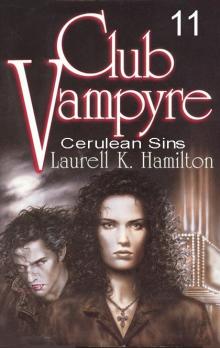 Anita Blake 11 - Cerulean Sins
Anita Blake 11 - Cerulean Sins The Girl Who was Infatuated with Death
The Girl Who was Infatuated with Death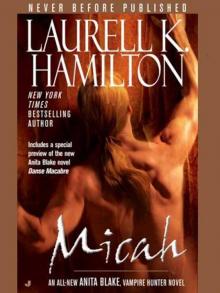 Micah ab-13
Micah ab-13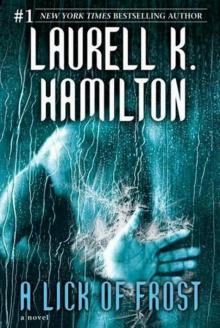 Meredith Gentry 6 - A Lick of Frost
Meredith Gentry 6 - A Lick of Frost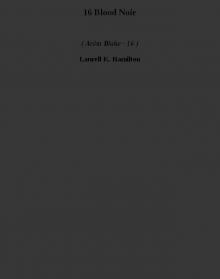 16 Blood Noir ab-16
16 Blood Noir ab-16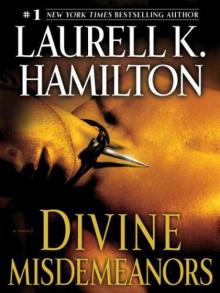 Divine Misdemeanors_A Novel
Divine Misdemeanors_A Novel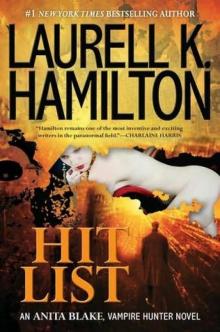 Hit List ab-20
Hit List ab-20![[Anita Blake Collection] - Strange Candy Read online](http://i1.bookreadfree.com/i2/04/12/anita_blake_collection_-_strange_candy_preview.jpg) [Anita Blake Collection] - Strange Candy
[Anita Blake Collection] - Strange Candy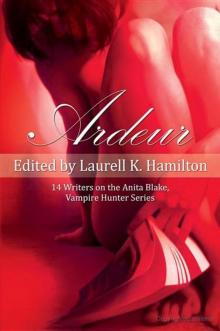 Ardeur: 14 Writers on the Anita Blake, Vampire Hunter Series
Ardeur: 14 Writers on the Anita Blake, Vampire Hunter Series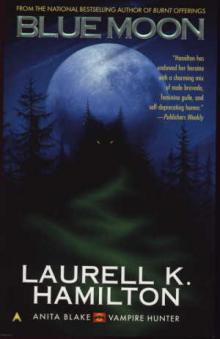 Anita Blake 8 - Blue Moon
Anita Blake 8 - Blue Moon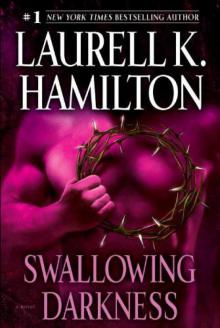 Swallowing Darkness_A Novel
Swallowing Darkness_A Novel